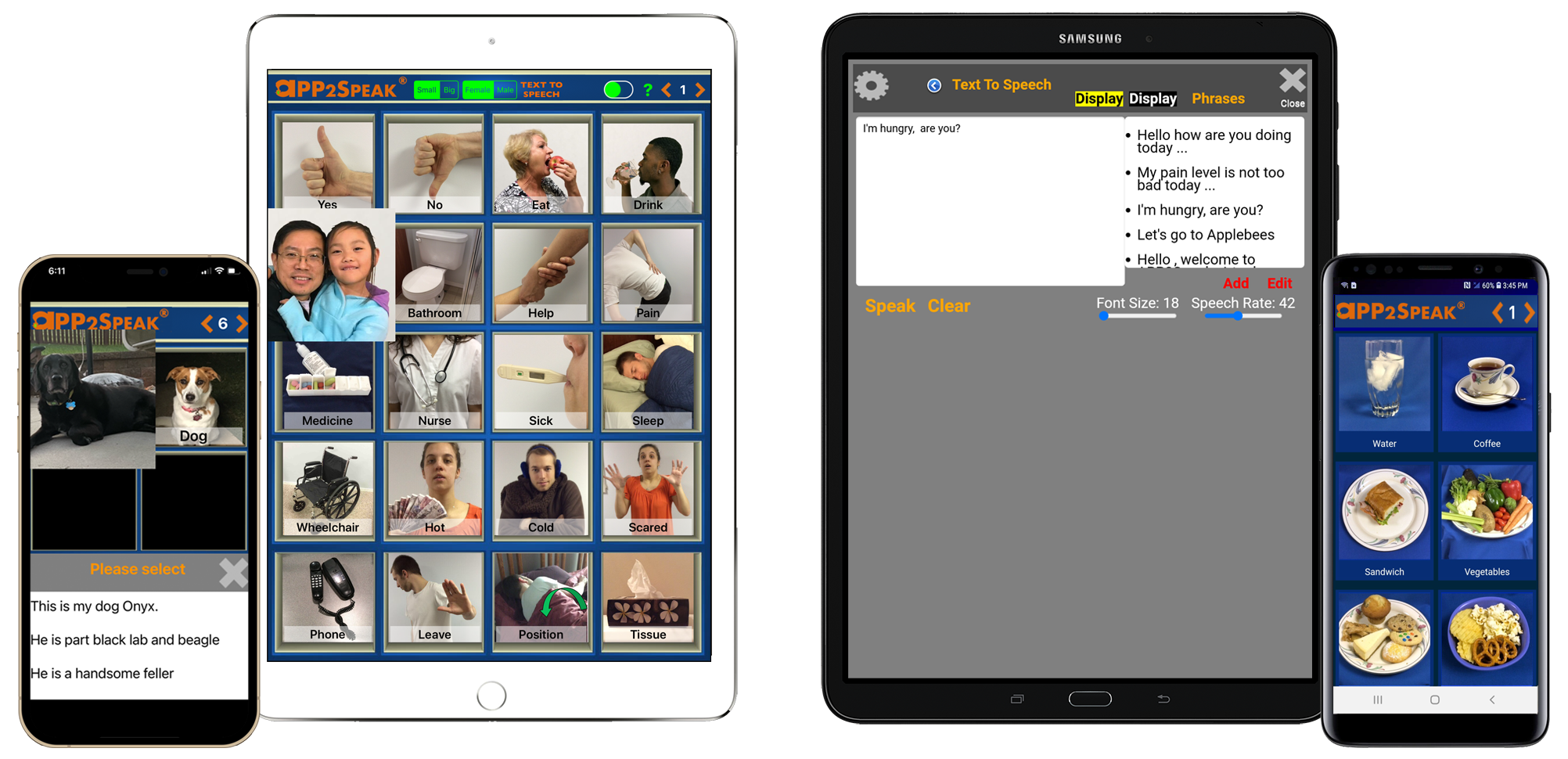
It’s Never Too Late to Reevaluate Your AAC Speech App
Recently, I’ve started working with a new patient. This gentleman had a stroke about six years ago and lost his ability to speak. While I’m still in the process of learning about his preferences, needs, cognitive abilities, etc., I’ve already found out one crucial piece of information: upon losing his ability to speak, he was provided with a free app on his iPad…but he doesn’t use it. I’ve also discovered that the reason he doesn’t use it is that he doesn’t understand the symbols and...
Would Your Loved One or Client Benefit from AAC? Find Out with Our Assistive Technology Compatibility Checklist
If you have a loved one or client who has challenges trying to communicate, you’ve probably been wondering whether it’s time to look for some help in the form of an augmentative and alternative communication (AAC) device or app. If so, your first move should be to seek professional assistance from a speech pathologist or AAC specialist. But if the physician won’t provide a referral to a speech pathologist, or if your insurance does not cover such services, you may need to take the initiative...
Dementia Care and Communication: The Dos and Don’ts of Dementia Communication Strategies
Dementia profoundly affects millions of individuals and their families worldwide, bringing unique challenges into the lives of those tasked with caregiving. Caregivers often find themselves at a crossroads, especially when it comes to communicating effectively with those in their care. The condition's impact on cognitive abilities can transform what used to be simple conversations into intricate puzzles, which can leave both parties feeling misunderstood and frustrated. In this post, you’ll...
Effective Dementia Communication Strategies: Insights from a Speech-Language Pathologist
Dementia profoundly impacts lives, altering the very essence of communication for those affected. As a certified speech-language pathologist, I've witnessed firsthand these challenges (and triumphs) in the journey of dementia caregiving. The crux of effective dementia care lies in understanding and adapting to the unique communication needs of those living with this condition. In this article, you’ll learn: The foundational aspects of dementia, including its types, symptoms, and stages. The...
Debunking 11 Common Augmentative and Alternative Communication (AAC) Myths
Augmentative and Alternative Communication (AAC) plays a crucial role in assisting individuals with communication challenges. Yet, numerous misconceptions surround its use and effectiveness. In this post, I want to debunk some common AAC myths and shed light on the truths of AAC. In this post, you’ll learn about: What AAC is, 11 common myths about AAC, The actual capabilities and scope of AAC, The damage caused when people believe these myths, and Some best practices for implementing AAC....
AAC Awareness Month 2023: Share Your Memorable Moments with AAC
In the world of augmentative and alternative communication (AAC), October holds a special place as AAC Awareness Month. This month-long event is dedicated to raising awareness about the importance of communication for individuals who have lost their ability to speak, whether due to stroke, brain injury, ALS, or other conditions. In this blog post, we’ll delve into the definition of augmentative and alternative communication, explore the historical background of AAC Awareness Month, reveal the...
Text to Speech Apps: A Versatile Communication Tool for People Who Can’t Talk
If you, a friend, or a family member has challenges communicating through speech, today’s technology provides you with many amazing options. Speech language pathologists assist such individuals with communication through a variety of methods, including arming them with appropriate Augmentative and Alternative Communication (AAC) tools that allow them to express themselves and live full lives. One category of AAC tools is text to speech apps that allow people who can’t speak to type or select...
Laryngeal Cancer and Communication Tools for Patients Who Cannot Talk
Today I wanted to talk a bit about one of the more common reasons people lose the ability to speak: having a laryngectomy as a result of throat cancer. As a speech language pathologist, I often work with people who have been diagnosed with laryngeal cancer and have had to have surgery as a result. In this post, I’ll talk about what laryngeal cancer is, how prevalent it is, and some of the ways people can regain their ability to communicate after surgery. What is Laryngeal Cancer? The larynx,...
APP2Speak—Powerful Assistive Technology for People Who Cannot Speak: One User’s Story
Every once in a while, we get a story from an APP2Speak user that’s so good we just have to share it with you, so that’s what today’s blog post will be about. Before we share the story itself, here’s a little backstory: Joanna W., a college student in an Occupational Therapy Rehabilitation Techniques class at Pueblo Community College in Colorado reached out to me recently with an interesting request. She had been given a class project and was assigned a disability and a diagnosis (like stroke...
June is Aphasia Awareness Month: Do Your Part to Help People Who Cannot Speak be Seen and Heard
On August 30, 2009, at only 36 years old, Kelly Marsh, a successful businesswoman with roles at the Cincinnati Museum Center and, most recently, chief marketing officer at Thomas More College, suffered a debilitating stroke. One effect of the stroke was aphasia, a language disorder that affects a person's ability to communicate. In their memoir, Love Stroke (2016), Kelly and her husband Brad, a successful entrepreneur and businessman, chronicle the challenges the couple faced from both the...

